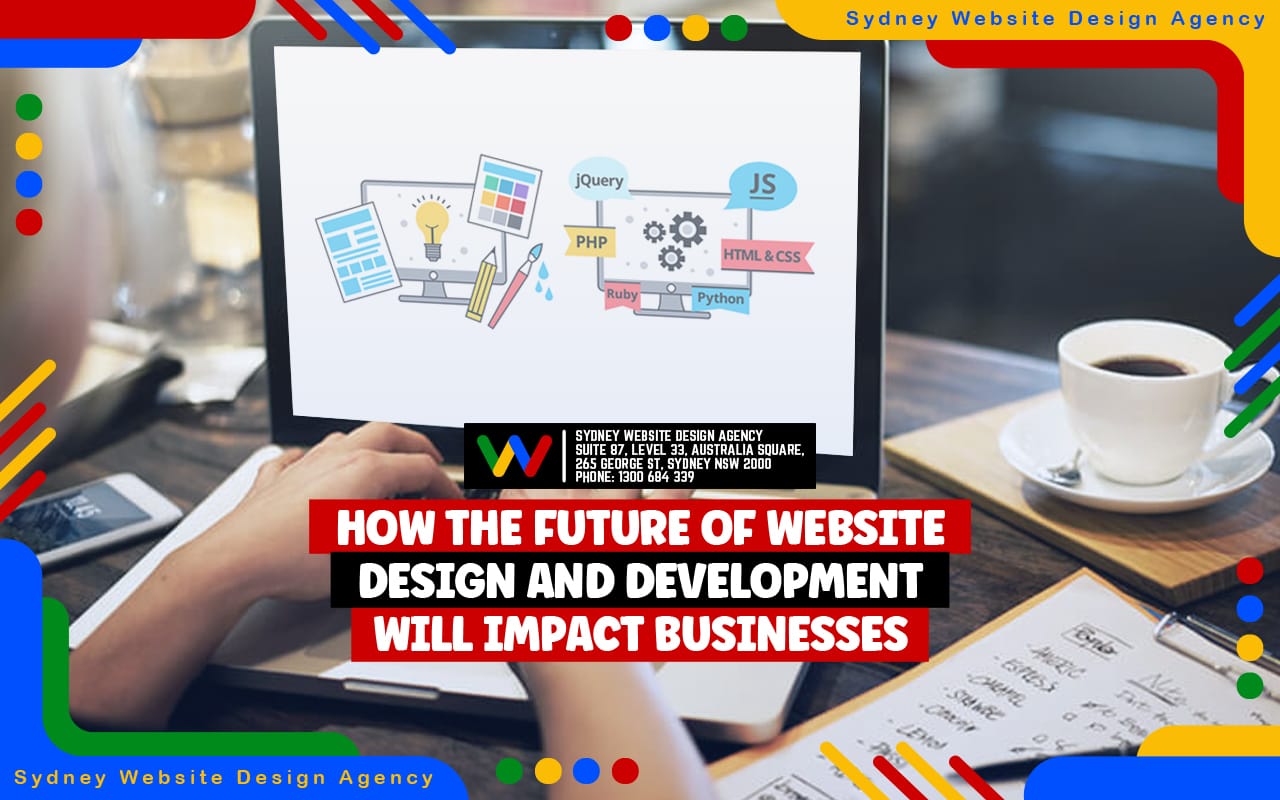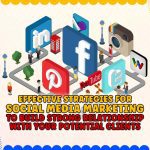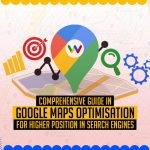The Future of Website Design and Development: What to Expect for Small Businesses

If you’re like most business owners, you may be wondering what the future of website design and web development services holds. With artificial intelligence (AI) becoming more widely used in web development, it’s hard to know what to expect. In this blog post, we’ll explore some of the trends that are likely to impact small businesses in the coming years as you develop websites for your business.
One of the most significant changes on the horizon is the increasing use of AI. Already, many leading companies have launched AI-specific products and platforms. This is likely to continue in the coming years, as businesses come to realise the value that AI can add to their websites. Web developers will evolve to something more when it comes to web design and development.
Another trend that is likely to impact small businesses is the growing use of chatbots. Chatbots are designed to simulate human conversation, and they can be used for a variety of purposes, such as customer service or sales. They are an excellent way to provide a high level of customer service at a low cost. As digital marketing evolve into more customer-centred approaches, custom web development is bound to evolve to something bigger and even more exciting for future potential customers and search engines.
As mobile usage continues to grow, it’s important for small businesses to ensure that their websites are responsive and easy to use on mobile devices. In addition, they should consider using Accelerated Mobile Pages (AMP), which are pages that have been designed specifically for mobile devices. AMP pages load quickly and provide a better user experience than traditional web pages.
It’s also critical for small businesses to make sure that their websites are secure. With cybercrime on the rise, it’s essential to take steps to protect your website from hackers. One way to do this is by using a security plugin such as WordFence or Sucuri.
The future of website design and development looks bright for small businesses! By taking advantage of the latest trends and technologies, you can ensure that your website stands out from the competition and provides a great user experience for your visitors.
Introduction
Small businesses are the backbone of the Australian economy. To ensure their success, it’s important for them to stay ahead of the curve when it comes to website design and web development.
But what is the future of website design and web development? Will it still be relevant for businesses in the coming years?
In short, the answer is yes. Website design and web development will continue to be significant for businesses in the years to come. Likely will be easier to convert leads into customers or raving fans. In the future, we can expect to see more businesses using personalised techniques to help with more engagement with their audiences.
In this blog post, we will explore what trends small businesses can expect in the coming years in web design and web development.
Table of Contents
- Web Design and Web Development For Business: What is the Difference?
- How Responsive is Responsive?
- The Future of Website Design and Development
- How No Code Movement Will Affect Businesses Future
- Benefits of No Code Websites for Business Owners
- FAQs Website Design and Development
- Future Proofing Your Business With Web Design And Website Development
Web Design and Web Development For Business: What is the Difference?

The terms “web design” and “web development” are often used interchangeably, but they actually refer to two different aspects of creating a website. Web design is the visual look of the site, while web development is the code that makes it work.
A web designer is responsible for creating the look and feel of a website. They create the layout, choose the colours, fonts, and images, and determine how the site will be organised. A web developer takes that design and turns it into a functioning website. They write the code that makes the site work, including the functionality and interactivity.
While both web design and web development are important to creating a successful website, they require different skillets. A good web designer needs to have an eye for aesthetics and be able to create a pleasing visual layout. A web developer needs to be able to write code that is clean, well-organised, and bug-free.
If you’re considering creating a website for your business, you’ll have to decide whether you want to hire a web designer or a web developer. If you have the budget, you can always hire both. But if you’re on a tight budget, you’ll have to choose one or the other.
If you want a website that is primarily focused on visuals, then you’ll want to hire a web designer. If your website will be mostly content-based, then you’ll want to hire a web developer. And if you’re not sure which one you need, then you can always ask for help from a professional web development company.
Web design and web development are two important parts of creating a successful website. If you’re not sure which one you require, then you can always consult with a professional web development Agency. They’ll be able to assess your needs and recommend the best solution for your business.
Responsive Web Design: How Responsive is Responsive?
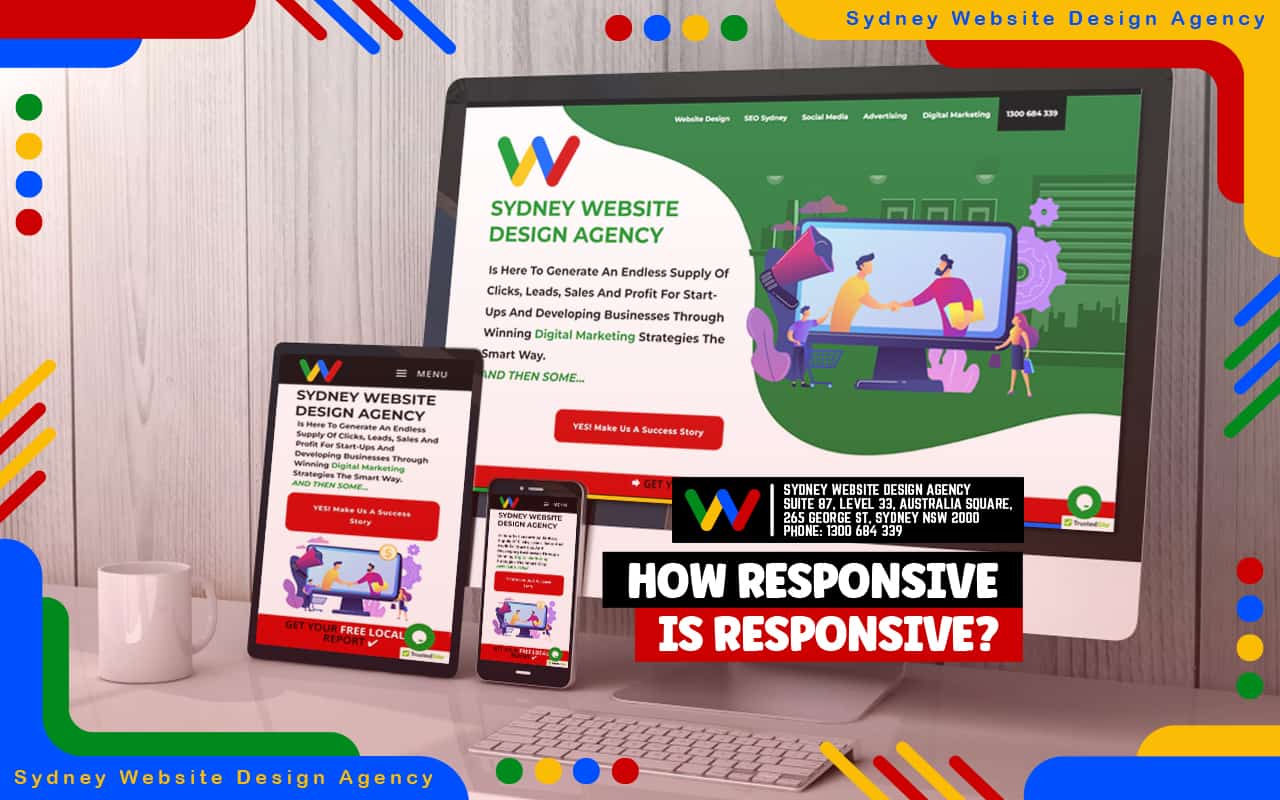
Responsive web design has been around for a while now, but it’s only recently that we’ve seen it become so commonplace. In the early days of responsive web design, it was all about tweaking your existing website to make it look good on mobile devices. But nowadays, responsive web design is all about building your site from the ground up to be mobile-friendly.
The term “responsive” refers to the fact that your site will adapt to the screen size of the device it’s being viewed on. No matter the type of device your viewers are using, they will be able to see your content in an easily digestible format.
One of the benefits of responsive web design is that it can help improve your site’s search engine optimisation (SEO). Google has stated that they prefer websites that are designed to be mobile-friendly, and they’re more likely to rank those sites higher in their search results.
Another benefit of responsive web design is that it can make your site easier to use for people with disabilities. If your eCommerce website is difficult to navigate on a mobile device, you could be excluding a large portion of your potential audience.
Responsive web design is not a one-size-fits-all solution, however. If you have a complex website with a lot of different content types, you might not be able to make it work with a responsive design. In these cases, you might need to consider a different approach, such as using a separate mobile website. From online marketing to the process on how to create websites, being able to be used seamlessly on mobile devices is a thing you should invest in today as well as for the future.
If you’re uncertain whether responsive web design is right for your site, the best thing to do is to ask a professional web development company or professional web design consultant for their opinion. They’ll be able to assess your needs and recommend the best course of action – from choosing web hosting to content management systems, and web accessibility.
What is Web Accessibility?
Web accessibility refers to the practice of making websites accessible to people with disabilities. This includes people who are blind, have low vision, are deaf, or have difficulty using their hands. A high-quality website of the future for modern business and online store will not be only complex sites but as well as very useful and easy to use websites even for those with special needs.
Creating an accessible website opens up the possibility for more people to visit and utilise it. This type of design also takes into account those who have disabilities, making it easier for them to use the site. A design agency or company can provide this service to their clients, not only now but even more robustly and effectively in the future.
There are a few different ways to make a website accessible. One way is to use “alt” tags on images. This allows people who are blind to “see” the images on the page by reading the text that is associated with them. If you are planning to create a new website for your business, paying attention to these factors is a good way to start.
Another way to make a website accessible is to use captions on videos. This allows people who are deaf to understand what is happening in the video by reading the text that is associated with it.
One of the most important things you can do to make your website accessible is to use clear and simple language. People with disabilities often have difficulty understanding complex language. So, it’s critical to use language that is easy to read and understand.
You should also make sure that your website is designed to be used with a screen reader. A screen reader is a software program that reads the text on a website aloud. This allows people who are blind to “hear” the content on the page.
Making your website accessible can be a challenge, but it’s worth it. By making your site accessible, you’ll be able to reach a larger audience and make your site easier to use for everyone.
If you’re not confident how to make your website accessible, the best thing to do is to ask a professional web development company for their opinion. They’ll be able to assess your needs and recommend the best course of action.
Future of Website Design and Development

The world of website design and development is constantly changing. New technologies are being developed all the time, and new ways of doing things are always being discovered.
So, what does the future hold for website design and development? Here are a few predictions:
1. Responsive web design will become even more important.
As more and more people use mobile devices to access the internet, it’s becoming increasingly critical for websites to be designed with these devices in mind. This means that responsive web design, which allows a website to adapt to different screen sizes, will become even more influential in the future.
2. The rise of artificial intelligence will change the way we design and develop websites.
Artificial intelligence is already being used to help design and develop websites. For example, Google’s “RankBrain” algorithm uses artificial intelligence to help improve the results of its search engine.
As artificial intelligence becomes more advanced, it will become even more involved in the website design and development process. This allows us to create more complex and intelligent websites that can better meet the needs of our users.
3. Virtual reality will become a more common way to experience websites.
Virtual reality is already being used by some companies to give their customers a more immersive experience. For example, Ikea has created a virtual reality app that allows users to explore its furniture in their homes before they buy it.
As virtual reality technology becomes more widespread, it’s likely that we’ll see more and more websites using it to give users a more immersive experience.
4. Websites will become more personalised.
Websites are already starting to become more personalised, with companies such as Amazon and Netflix using algorithms to recommend products and shows based on our past behaviour. With ongoing support from a digital agency, this is very possible. It eventually helps in improving brand presence.
As website design and development becomes more sophisticated, we’ll see even more personalised. This could include things like websites that automatically adjust their content based on our location or the time of day.
5. The line between web design and web development will blur even further.
The line between web design and web development is already quite blurred. For example, many web designers also have some coding skills, and vice versa.
As the two disciplines continue to evolve, the line between them will become even more blurred. This could lead to new hybrid roles, such as “designer-developers” or “developer-designers.”
These are just a few of the predictions for the future of website design and development. What do you think the future holds?
How No Code Movement and How it Will Affect Business Websites of The Future
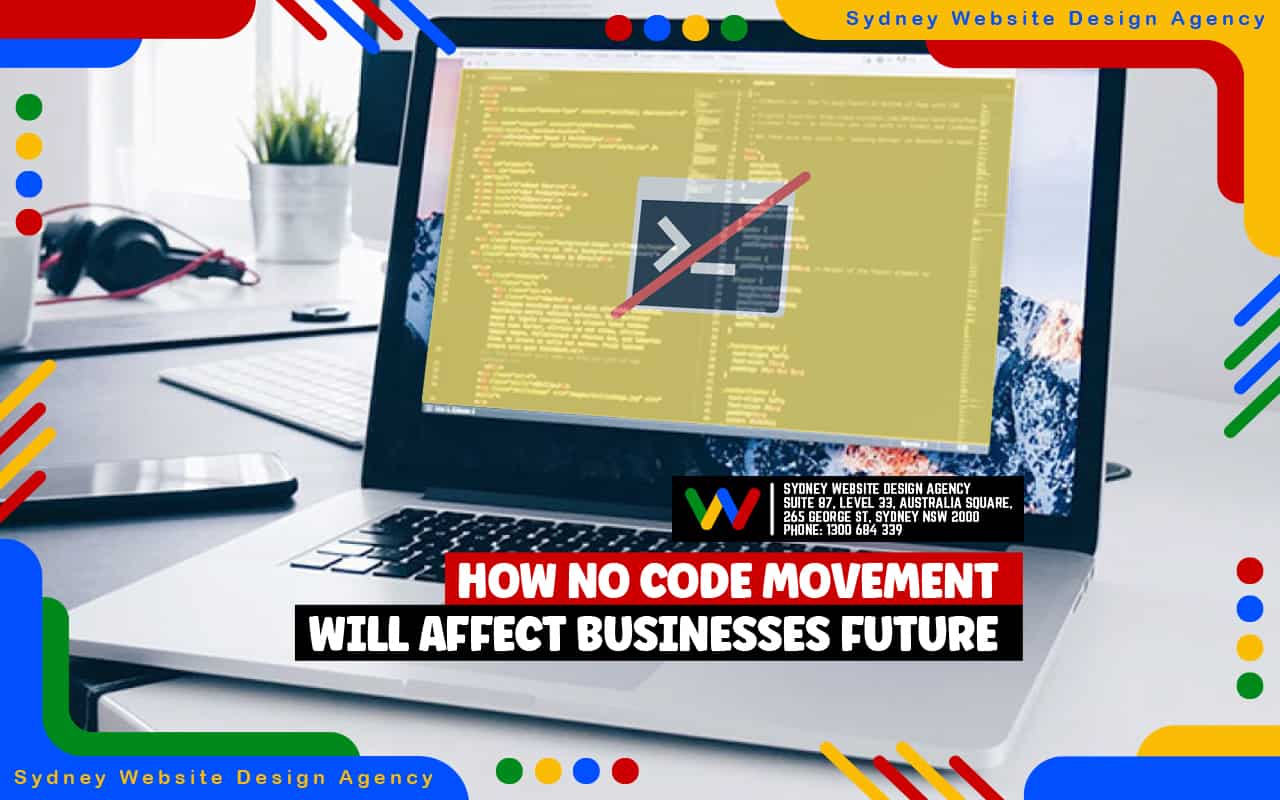
The no code movement is a growing trend in the tech industry that is starting to have an impact on businesses and their websites. The no code movement is about making it easier for people to create and customise software without needing to write any code.
There are many reasons why the no code movement is gaining popularity. One reason is that it allows non-technical people to build things that they wouldn’t be able to build otherwise. This means that more people can participate in the creation of new technologies, which can lead to more innovation.
The no code movement is also starting to have an impact on the way businesses build their websites. In the past, businesses would often hire web developers to build their websites for them. However, with the rise of the no code movement, businesses are starting to build their own websites using no code platforms like WordPress.
This is a significant change because it means that businesses don’t have to rely on web developers to build their website for them. They can now build their own website using a no code platform like WordPress and then customise it to meet their specific needs.
The no code movement is still in its early stages, but it is already starting to have an impact on businesses and their websites. It is likely that the no code movement will continue to grow in popularity and that it will have a major impact on the way businesses build their websites in the future.
Benefits of No Code Websites for Online Businesses

1. Lower Cost
Building a website from scratch requires countless investments including hiring web developers, buying hosting plans and domain names, and spending time on developing the website. On the other hand, you can create a website without writing a single line of code and that too free of cost. WordPress is one such popular no code website builder that offers free themes and plugins to create a website without writing any code.
2. Increased Efficiency
No code websites are more efficient as they don’t require any coding skills. This means even a layman with no technical knowledge can create a website using these platforms. This increased efficiency also reduces the time required to develop a website as compared to traditional methods.
3. Enhanced Productivity
No code websites help you focus on your core business goals and leave the website development to the no code platforms. This enhanced productivity eventually leads to increased profits for your online business.
4. Easier Maintenance
No code websites are easier to maintain as they don’t require regular updates and patches like traditional websites. This means you can spend more time on developing your products and services rather than maintaining your website.
5. Greater Flexibility
No code websites offer greater flexibility, as they can be easily customised according to your changing business needs. This means you can introduce changes to your website without having to hire a web developer or coder every time you want to make a change.
6. Enhanced Collaboration
No code websites allow greater collaboration among team members, as they can work on the website from anywhere in the world. This is because no code platforms are hosted on the cloud, which makes it easier for team members to work together on the same project.
FAQs Website Design and Development
What is the significance of having an online store for my business?
Our Australian web design agency specialises in creating fully integrated custom websites with seamless ecommerce functionality to enhance your digital presence and drive sales.
How can a professional web designer help with my website project?
Whether you need a new website or a redesign, our designers ensure that every aspect of your site is optimised for success.
What is involved in a web development project?
From ecommerce websites to content management systems, we leverage the latest technologies and best practices to deliver exceptional results.
Why should I consider website redesign services for my business?
Our Sydney web designers specialise in revamping existing websites to improve functionality, enhance user experience, and implement the latest SEO strategies for better visibility and conversions.
How do you ensure ongoing website maintenance after the project is completed?
With our team handling the technical aspects, you can focus on growing your business without worrying about your website’s upkeep.
What are the benefits of having a fully integrated custom website for my business?
From built-in marketing tools and brand-specific campaigns to advanced ecommerce functionality, our websites are designed to enhance your online presence and drive business growth.
Our Australian web design agency prides itself on delivering solutions that meet your unique requirements and exceed your expectations.
What is the web design process followed by your agency?
Our team of talented designers then collaborates to create mockups and prototypes that capture your vision and align with your brand identity.
Once approved, we proceed to the development phase, where our developers bring the designs to life with clean code and seamless functionality.
Throughout the process, we prioritise communication and collaboration to ensure that your website exceeds your expectations.
How can SEO strategies improve the visibility of my ecommerce website?
Our SEO specialists work closely with our web designers and developers to optimise your website’s content, structure, and performance for maximum visibility and organic traffic.
From keyword research to on-page optimization and link building, we employ a holistic approach to SEO to ensure long-term success for your online store.
Why is it essential to have a content management system for my website?
Whether you’re adding new products to your ecommerce store or publishing blog posts to engage your audience, our CMS solutions make it easy to keep your website’s content fresh and relevant.
What sets your Australian web design agency apart from others?
With a team of experienced web designers, developers, and marketers, we offer comprehensive services to help your business succeed online.
From visually appealing designs to seamless integration and ongoing support, we provide end-to-end solutions tailored to your specific needs and objectives.
How can professional web designers and developers in Sydney help with website creation?
Whether you’re a new business looking to establish an online presence or an established company seeking to revamp your website, our team of Sydney web designers offers comprehensive services tailored to your specific needs.
From branding advice to SEO strategy and exceptional platform development, we provide end-to-end solutions to help you succeed online.
What role do landing pages play in online marketing strategies?
Whether you’re promoting a new product, running a brand-specific marketing campaign, or launching a special offer, our graphic designers and marketing team work together to create visually appealing landing pages that compel visitors to take action.
How can ecommerce companies leverage social media marketing to sell products online?
Our marketing agency specialises in developing tailored marketing strategies that leverage social media channels to drive traffic, increase engagement, and ultimately sell products online.
From content creation and branding advice to SEO strategy and web design and development, we provide comprehensive services to help ecommerce companies succeed in the competitive online marketplace.

Future Proofing Your Business with Web Design And Website Development
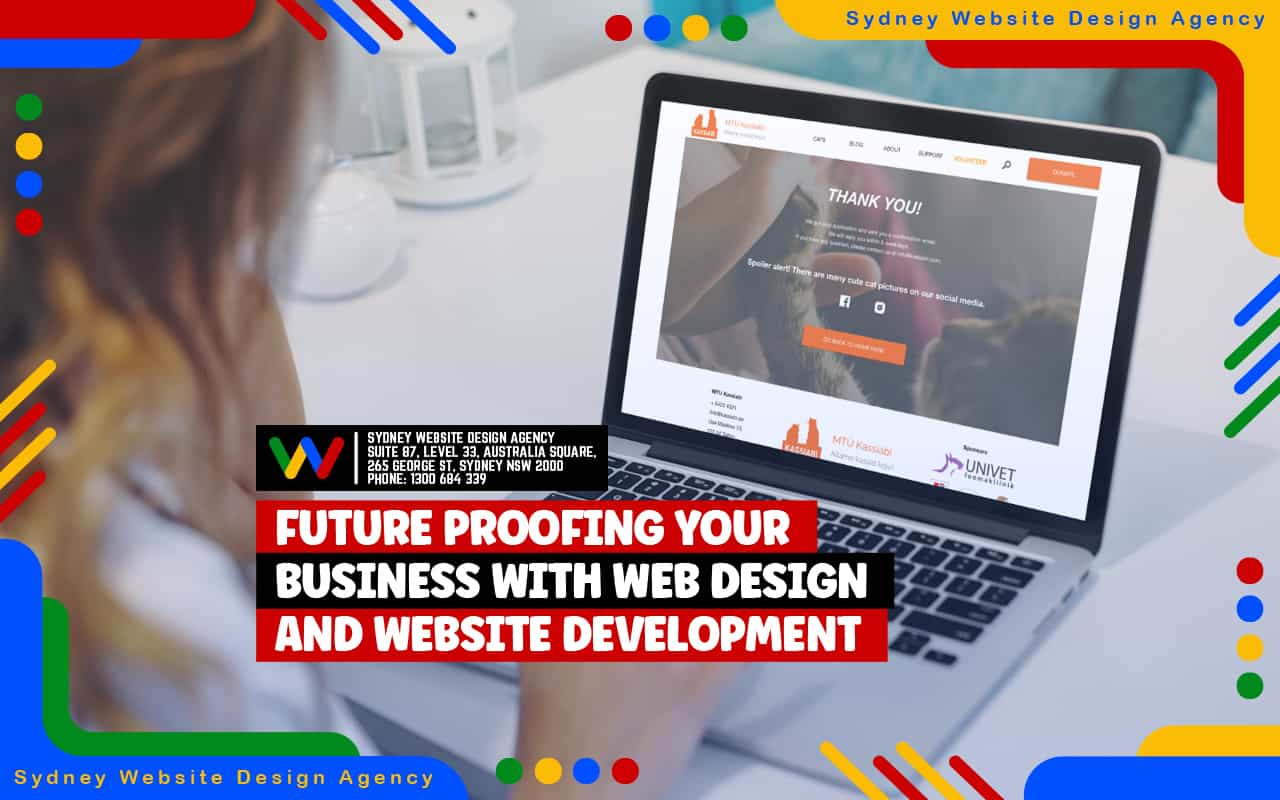
Web design and website development is a dynamic and ever-evolving field that continuously transforms alongside technological advancements. As the digital landscape evolves, our approaches to creating and managing websites must also adapt to keep pace with the changing trends and technologies.
To maintain a competitive edge in the realm of web design and development, it is crucial to stay abreast of the latest industry trends and emerging technologies. Embracing the use of artificial intelligence (AI) wherever feasible, prioritising responsive design practices, and cultivating a mindset of readiness to pivot in response to emerging trends are key strategies for staying ahead of the curve.
By proactively integrating AI technologies, focusing on creating responsive designs that cater to diverse user devices, and remaining agile in response to shifting industry trends, you can future-proof your business for sustained success in the ever-evolving digital landscape. Stay attuned to the pulse of innovation and be prepared to adapt to emerging paradigms to ensure that your business remains relevant and resilient for years to come.
